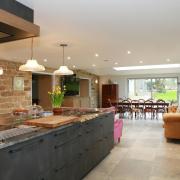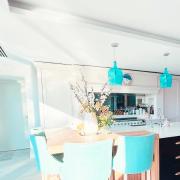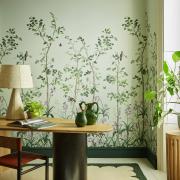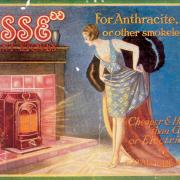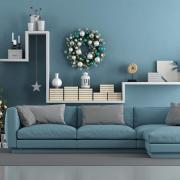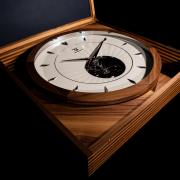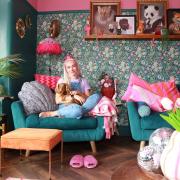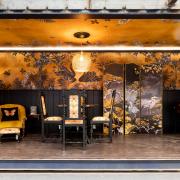Wood is a world-beater when it comes to stylish, organic interior design says Alison Tordoff
It’s magic stuff, wood. The effects of wood spread far and wide in my projects and I love its versatility.
The fast growing tree varieties are chosen specifically for the mass market, while some other, slower grown, woods are so rare that they are embargoed and not allowed to leave their native country.
Even though it’s been around for millions of years, wood has moved on dramatically with modern machining and technology. It is still a sustainable, solid and dependable material, but comes in many more exotic forms like the striking lines of zebrano, the warm hues of padauk and the beautiful markings in sweet lime. Dramatic colour and pattern varieties come with the likes of wenge, ebony, rippled elm and burr elm.
Many of my design heroes have worked in wood with great success. Rennie Mackintosh was a genius at combining strong architectural lines with organic natural shapes.
The variety, colour and pattern of each piece in a wood creation can be considered a honed piece of art in itself, from rustic treatment to the organic Art Nouveau movement and the smooth lines of the 1960s.
The Gplan company was the first major launch of quality designed wood furniture following the Second World War and is now having a resurgence with the current retro styling and up-cycling trends. Gplan used more cost effective methods of construction by skillfully combining veneered and solid sections.
I reach for my all-time favourite resource book, World Design (derived from wood pulp) as my source of inspiration and research the design classics. Steeped in history, companies like Thonet produced the organic and classic bent wood coffee-house chairs, one of the most successful mass produced items of furniture with over 50 million chairs being sold in the early part of the 20th century.
And today it’s still a style icon seen in many bars and cafes around the world. The world famous architect and furniture designer Le Corbusier was so impressed he used them in his pavilion at the 1925 Paris Design exhibition. Next time you’re out in a café or restaurant, take a look at the chairs and tables as well as the menu.
One of my all-time favourite architects Frank Gehry (still designing today at the age of 86) created the Easy Edge Chair, a ground-breaking design, out of corrugated cardboard. Like the breathtaking irregularity and organic architecture of his Guggenheim Museum in Bilbao, he is always pushing the boundaries of form and function, and exploiting the use of everyday materials.
Here in the north west, there are master craftsmen like Andy Smith, at Lakeland Fells Furniture, with his superb skills to bend, shape, curve, layer, turn and carve. I love the way that his carving is added to the most simple and basic of items, such as the new cocktail cabinet at Special Spaces in Windermere, with the turned bullseye central feature, and his use of different of pieces of wood, all different colours and patterns. The possibilities are endless. You can have anything in wood these days: lights, watches and even i-phone covers.
Alison Tordoff runs Windermere-based Fidget Design and has just won the Creative Industry award at the EVA event, the Enterprise Vision Awards which recognise women in business from across the North West.




